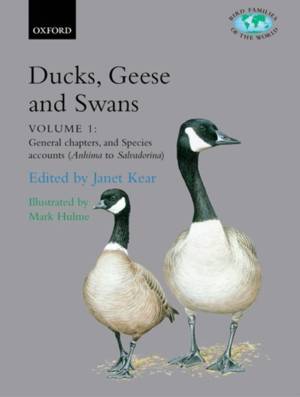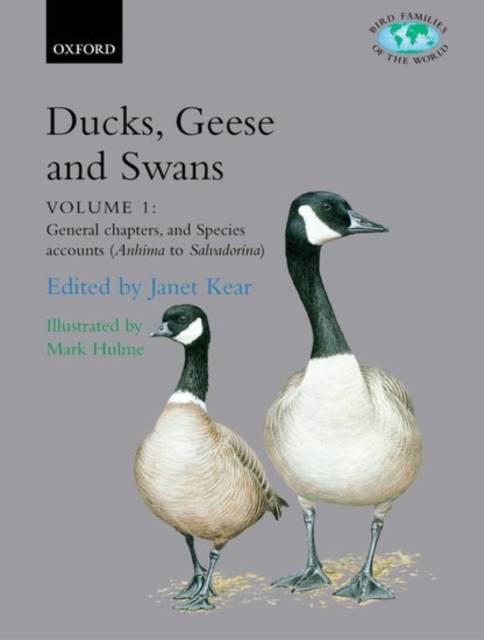
Wil je zeker zijn dat je cadeautjes op tijd onder de kerstboom liggen? Onze winkels ontvangen jou met open armen. Nu met extra openingsuren op zondag!
- Afhalen na 1 uur in een winkel met voorraad
- Gratis thuislevering in België vanaf € 30
- Ruim aanbod met 7 miljoen producten
Wil je zeker zijn dat je cadeautjes op tijd onder de kerstboom liggen? Onze winkels ontvangen jou met open armen. Nu met extra openingsuren op zondag!
- Afhalen na 1 uur in een winkel met voorraad
- Gratis thuislevering in België vanaf € 30
- Ruim aanbod met 7 miljoen producten
Zoeken
Omschrijving
Wildfowl and screamers belong to a highly diverse family of birds, confined to watery habitats. They are amongst the most attractive of birds and are very well-known to man, who has domesticated them, used their feathers for warm clothing and ornamentation, admired their flight, courtship and migration, caught them for food, maintained them in captivity for pleasure, and written about their doings in delightful children's stories, from Mother Goose to Jemima Puddleduck and Donald Duck. They occur throughout the world except Antarctica. Some are faithful to the same partner for life, others for only the few minutes of copulation. In some species, male and female make devoted parents, and yet there is one within the group whose female lays her eggs in the nests of others and never incubates. Diving as a method of obtaining food has evolved many times within the family. Most nest in the open but others in the tree-hole nests of woodpeckers and some in the ground burrows of
rabbits or aardvarks. They may be highly social or solitary, defending a large territory. Ducks, Geese, and Swans begins with eight chapters giving an overview of the family, their taxonomy and evolution, feeding ecology, breeding strategies, social behavior, movements and migrations, population dynamics, and conservation and management, followed by accounts of 165 species, written by a team of expert wildfowl specialists, describing each bird in its natural state and summarizing the published literature and recent research. Complementing the accounts are thirty specially commissioned color plates by Mark Hulme, along with numerous black and white drawings illustrating behaviors, plus distribution maps for each species.
rabbits or aardvarks. They may be highly social or solitary, defending a large territory. Ducks, Geese, and Swans begins with eight chapters giving an overview of the family, their taxonomy and evolution, feeding ecology, breeding strategies, social behavior, movements and migrations, population dynamics, and conservation and management, followed by accounts of 165 species, written by a team of expert wildfowl specialists, describing each bird in its natural state and summarizing the published literature and recent research. Complementing the accounts are thirty specially commissioned color plates by Mark Hulme, along with numerous black and white drawings illustrating behaviors, plus distribution maps for each species.
Specificaties
Betrokkenen
- Auteur(s):
- Illustrator(s):
- Uitgeverij:
Inhoud
- Aantal bladzijden:
- 930
- Taal:
- Engels
- Reeks:
- Reeksnummer:
- nr. 16
Eigenschappen
- Productcode (EAN):
- 9780198546450
- Verschijningsdatum:
- 7/07/2005
- Uitvoering:
- Hardcover
- Formaat:
- Genaaid
- Afmetingen:
- 251 mm x 198 mm
- Gewicht:
- 2834 g

Alleen bij Standaard Boekhandel
+ 612 punten op je klantenkaart van Standaard Boekhandel
Beoordelingen
We publiceren alleen reviews die voldoen aan de voorwaarden voor reviews. Bekijk onze voorwaarden voor reviews.











